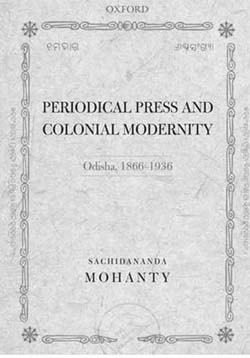Odisha and Odiya language faced a crisis in the second half of the nineteenth century. Institutions and dispositions introduced by colonial modernity had produced a crisis of survival and autonomy before the Odiya speaking gentry. The new system of education, style of governance, use of technology, maritime trade, new revenue regulations, modern science and healthcare practices, and even food and other articles of consumption and new forms of entertainment, had unsettled a traditional social order. The Odiya literati responded to this crisis in several ways. Noted scholar Sachidanand Mohanty maps the complexity of this response through a careful study of the content and ideology of two late nineteenth century Odiya periodicals—Utkal Dipika and Utkal Sahitya. Mohanty explores the diverse, and often ambivalent, manner through which the educated literati in Odisha negotiated the pulls and pressures of colonial modernity. While they acknowledged the need to adapt, they also emphasized caution and forcefully advocated the cause of linguistic and literary autonomy. Within this complicated negotiation lay aspects of the history and politics of the emergence of literary and journalistic periodicals and indeed of print media in Odisha between 1860 and 1920.
From very early on, there developed a clear idea that formal education through Odiya alone embodied an inherent capacity to produce a spirit of independence and public welfare. A clear distinction was made in this context between securing a livelihood or career as an individual and a disposition for the greater good of the public. The latter was considered a higher virtue than the former. Education through the English medium was considered a bane, producing a careerist disposition and impeding the emergence of public-spirited individuals. That apart, ‘English Education’ was popularly associated with a corrupt and decadent lifestyle, undermining traditional institutions such as family.

